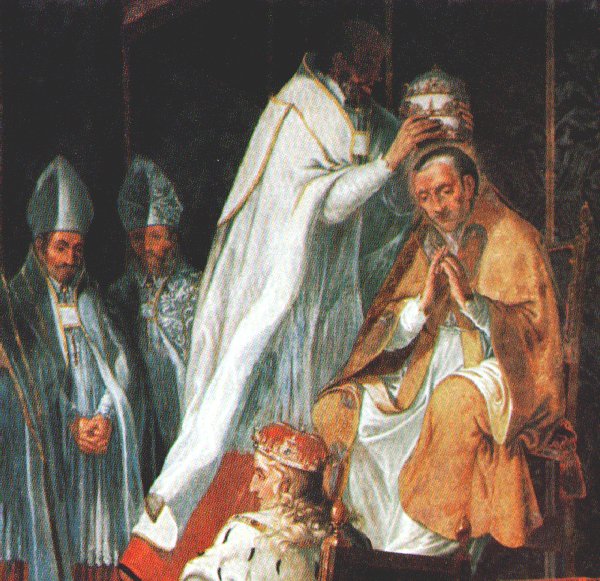Contemporary Canonist Shows that a Publicly Heretical Pope is No Pope at All. Let us Watch Therefore Who we Call a Heretic!
https://canonlawblog.wordpress.com/2016/12/16/a-canonical-primer-on-popes-and-heresy/
Setting aside a few who, relying on half-baked notions like “popes are not bound by canon law”, throw up their hands in despair at the prospect of a heretical pope and predict the End-of-the-World-as-We-Know-It, others, more reasonably, point to Canon 1404, which states “The First See is judged by no one”, and conclude that the only remedies in the face of a genuinely heretical pope are prayers and fasting. May I suggest, though, that canon law has somewhat more to offer than that.
Wrenn, writing in the CLSA NEW COMM (2001) at 1618 states: “Canon 1404 is not a statement of personal impeccability or inerrancy of the Holy Father. Should, indeed, the pope fall into heresy, it is understood that he would lose his office. To fall from Peter’s faith is to fall from his chair.” While I suggest that Wrenn’s warning be read again, lest its startling impact be overlooked by the calm manner in which he expressed it, turning to the crucial question as to who would determine whether a given pope has fallen into heresy, Wrenn notes that it is not settled by Canon 1404 nor, I would add, is it settled by any other canon in the Code. But again, one may turn to canonical tradition for insight.
To be sure, all admit that in talking about popes falling into heresy we are talking a very remote scenario. Vermeersch-Creusen, Epitome I (1949) n. 340, “This sort of case, given the divine protection of the Church, is considered quite improbable.” Beste, Introductio (1961) 242, “In history no example of this can be found.” And the great Felix Cappello, Summa Iuris I (1949) n. 309, thought that the possibility of a pope falling into public heresy should be “entirely dismissed given the special love of God for the Church of Christ [lest] the Church fall into the greatest danger.”
But Cappello’s confidence (at least in the scope of divine protection against heretical popes) was not shared by his co-religionist, the incomparable Franz Wernz, whose summary of the various canonical schools of thought about the possibility of a papal fall from office due to heresy is instructive. After reviewing canonical norms on loss of papal office due to resignation or insanity, Wernz-Vidal, IUS CANONICUM II (1928), n. 453, considers the impact of personal heresy on the part of a pope (emphasis and citations omitted):
Through heresy notoriously and openly expressed, the Roman Pontiff, should he fall into such, is, by that very fact, and before any declaratory sentence of the Church, deprived of his power of jurisdiction.
I know of no author coming after Wernz who disputes this analysis. See, e.g., Ayrinhac, CONSTITUTION (1930) 33; Sipos, ENCHIRIDION (1954) 156; Regatillo, INSTITUTIONES I (1961) 299; Palazzini, DMC III (1966) 573; and Wrenn (2001) above. As for the lack of detailed canonical examination of the mechanics for assessing possible papal heresy, Cocchi, COMMENTARIUM II/2 (1931) n. 155, ascribes it to the fact that law provides for common cases and adapts for rarer; may I say again, heretical popes are about as rare as rare can be and yet still be.



Comments
Post a Comment